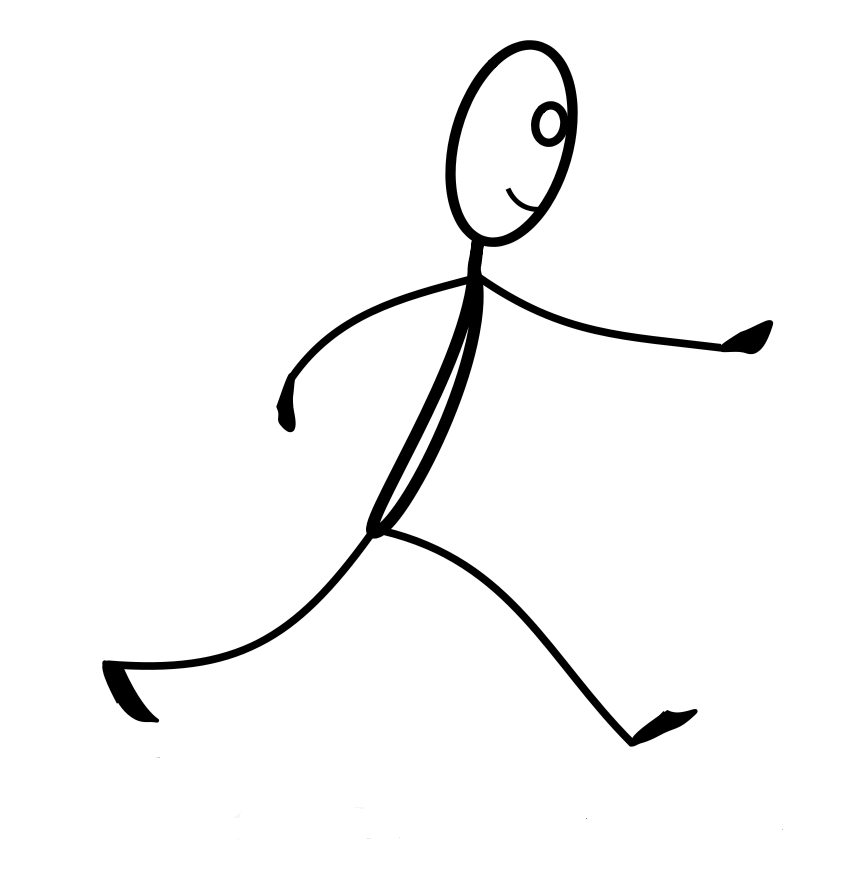- Strengths and weaknesses may not be as they seem
- Being aware of your surroundings is a shortcut
- Detail and big-picture thinking should be recognized for their respective benefits
Like everyone, I have strengths and weaknesses. Both in life in general and in playing the violin. One thing I tend to have going for me is a talent for memorization. Even in writing these blog posts, I tend to first compose a post, word for word, in my head, and later, get to my phone and computer and try to dictate it from memory. It's a wonder I don't explode from trying to capture so many sentences before they're in print!
But not all of my strengths are as beneficial as much as I might expect. One thing I realized recently is I'm not as detail-focused as I originally thought I was. And that's good! I'm not convinced that being ultra-detail-conscious is even the best use of my energy all the time. Even though I exposed that skill set as a talent on job applications, it isn't always helpful at home. I mean, I can definitely be focused on details. I keep certain areas of my house spotless"”the top of the hutch or the fireplace mantel, for instance. Shoes are nearly always put away.
And my husband (very much a detail guy) cleans my front room for me before my teaching day every week. But the kitchen table is usually a collect-all surface. Chairs and couches host jackets or bags of stuff I either dump there out of habit or I tell myself I'll get to "later." Then "later," in the sense of cleaning up, comes MUCH later than I intend.
My procrastination can frustrate me, but getting bogged down by getting things perfect all the time is even more of a problem when I try to do that instead . . . in writing blog posts, too. Quite frankly, it sets me up for failure if I neglect the big things in favor of things that don't matter as much. So, how to find the correct balance? 'Tis a mystery as well as an art, more than a science, at least in my mind.
Sometimes focusing on only what's essential saves my sanity. While trying to get tiny kids out the door to get to church on time, deflecting their myriad of questions and gathering up shoes and diapers, chances are good I'm not going to focus on details like zipping up coats, ironing dresses, shining shoes, or brushing hair or teeth. Just making it into the pew every week is the big win, and you can't feel guilty for forgetting to bring games for the car or a full water bottle for each kid for the way home!
In violin playing, I can be picky about certain things"”for instance, intonation: always, no matter how old I get. Or focusing on blend or rhythm. And of course, I am aware of important things like making sure I don't skip over a rest and have an unintentional solo in orchestra rehearsal as a result. But other things tend to slide. Yes, I am constantly working on details. But no one can do it all. It's not my top priority to have the perfect speed of vibrato for every note or to time every diminuendo so it fades at a perfectly equal rate over the duration of the phrase, unless the music is ridiculously easy and I'm bored. Because I'm a recovering detail fanatic, I only half believe this myself, but experience has taught me that "good enough" is okay sometimes. Not to brag, but luckily, I'm at the point where good enough is actually pretty excellent.
I enjoy practicing more than I used to. I trick my brain by telling myself I'm just going to go "play my violin" rather than "practice." And having a fun performance to practice for always helps. I once read a statement from the Piano Guys that you ought to spend just as much, if not more, time performing than practicing! I love being prepared. But when, like me, you're preparing for six different concerts or recordings (for different groups) with their accompanying rehearsals in the same month, sometimes you don't have the luxury of as many hours of focused individualized practice on each set of music as you think is ideal. You're fortunate when you make it to rehearsal on time with your bow rosined and a pencil in hand.
That's when strengths like excellent sight-reading skills, calming any pre-rehearsal anxiety, greeting others with a smile, and intense focus on what the conductor wants become critical. Not that you never practice. One conductor, Lois Stout, when I was at an impressionable age, taught that even if professional musicians haven't learned their music before the first rehearsal, you'd better believe they're practiced up by the time the second one rolls around.
When you naturally miss some details, no matter how hard you try, relying on ideas from others who are even more detail-conscious is very helpful. That's one of the benefits of being a string player and having a section to back you up.
Just being aware of what's around you is a shortcut to success. For instance, you might notice your stand partner put on her mute in a place where you didn't notice the indication in the music, because you were concerned about a page turn. In turn, she might miss the timing of a thirty-second-note pickup where you happened to nail it. We just tend to notice different details sometimes. And that's okay! Then you both are better the next time around by learning from each other.
Really, you have to consider both detail and the big picture. Recently I was working on a recently-composed concerto to play with a local orchestra. In my preparations, the passages were accurate and heartfelt, but it all just sounded loud. I decided it needed more dynamic contrast. But how? As a soloist, how would I play soft without getting buried? When I played it for my teacher, he agreed that it "all sounds the same," but surprisingly, he said I needed to play a lot of it even louder. I needed to be more dramatic. "Play for the people on the back row," he said, not the people sitting in the front row. "Be better than the music." These were obviously big-picture principles.
But, he also took at least ten minutes on just the first two lines of music. He helped me isolate lots of details"”details I never thought of"”and ideas for exhibiting contrast: where to use big bows, when to sustain the sound and keep crescendoing when I wouldn't have, suggesting places where I could achieve contrast in other ways, not just dynamically. We took it apart, measure by measure. He identified places where I could be more accented, play off the string, go up an octave, or decide on exactly which space between notes to switch to a more playful mood. Articulation and creativity, not just loud versus soft. Funnily enough, I suggest similar musical concepts to my students, but it doesn't change how helpful it is when someone is specifically there to give feedback to ME.
Clearly, focus on details as well as big-picture thinking are both critical talents for success as a violin soloist, an orchestral musician, a teacher, writer, parent, composer, student, conductor, or just as a human being. If you're not vigilant, focusing on details can get you stuck in a rut and you can even waste time! Similarly, thinking solely of the big picture can make you forget how to get down to the nitty gritty to achieve it. For example, as a conductor, you might know Beethoven's Fifth Symphony really well, but if you forget to invite people to come or to make sure people are at the venue to handle the lighting and tickets, you won't have much of an audience. Or you might play your instrument with passion, but if you don't line up your performance with the other players in the ensemble, it will sound pretty pathetic.
Expertise means doing it all! When done right, detail work makes the performance better, where big-picture thinking puts things in perspective and helps you enjoy yourself and prioritize. It helps you as a whole musician to be better.
In the same breath, you can't do everything alone. It helps to know and capitalize on your strengths and allow others to assist you in improving where you're weak.
I am passionate about my work as a musician. I'm just grateful to have stumbled into principles that have made a huge difference for me, like relying on insights from others and identifying where my strengths and weaknesses can help me or pull me down if I'm not careful! Happy musicking!








